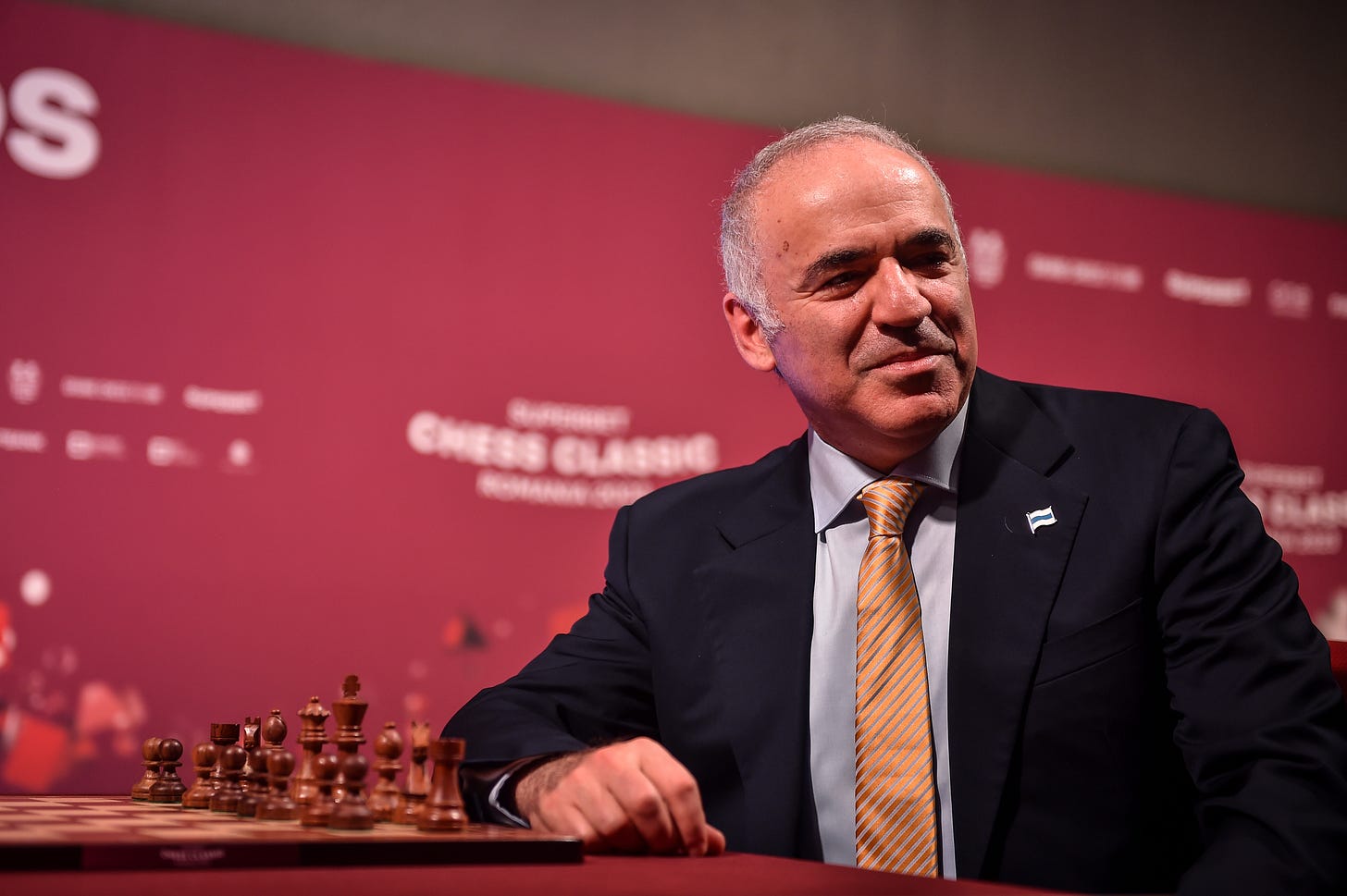
Two plus two equals four. There are twenty-four hours in a day. And
understands something essential about defeating authoritarianism that his critics consistently miss.I know Garry personally, and I can personally vouch for his unwavering commitment to human freedom and dignity. This isn't just rhetorical posturing or abstract principle for him—it's a conviction forged through direct confrontation with Putin's regime, through years of activism that put his safety at risk, through the lived experience of witnessing democracy's fragility firsthand.
What makes his recent piece on his new Substack “The Next Move” (launched just three weeks ago) so valuable is precisely what prompted accusations of “both-sidesism”: his insistence that opposing authoritarianism effectively requires honest assessment of democratic failures. This isn't moral equivalence—it's strategic clarity from someone who has played the highest-stakes games imaginable.
The chess champion understands what many well-meaning defenders of democracy don't: that knowing you're on the right side isn't enough. Winning requires understanding your own weaknesses before your opponent exploits them fatally. When Kasparov critiques Obama's foreign policy or Clinton's triangulation, he's not suggesting they're morally equivalent to Trump. He's identifying missed opportunities and strategic errors that contributed to our current vulnerability.
This distinction matters enormously. True “both-sidesism” falsely equates moral positions to avoid taking a stand. Kasparov does the opposite—he takes the clearest possible moral stand against authoritarianism, then asks what would make that stand more effective. This isn't compromise; it's commitment to winning a fight that matters too much to lose.
The defensiveness his critics display illustrates exactly the problem he's identifying. When any criticism of Democratic leadership triggers accusations of bad faith or even racism, we've abandoned the intellectual honesty required to solve problems. This reflexive defensiveness doesn't strengthen democratic forces—it weakens them by making them incapable of learning from mistakes.
The Grand Praxis holds that meaning emerges from creative tension rather than from its collapse into comfortable uniformity. Kasparov embodies this understanding. He maintains absolute moral clarity about the unique danger Trump poses while refusing the comfort of partisan simplification. He recognizes that the center must be held—not through ideological purity tests, but through the harder work of honest assessment and strategic adaptation.
Two plus two equals four. There are twenty-four hours in a day. And sometimes defending democracy requires the courage to criticize its defenders when they fail, not because they're equivalent to its enemies, but precisely because they're our best hope against them.
The center must be held—not because it is easy, but because it is ours to hold. And holding it requires exactly this kind of honest assessment from friends of freedom like Garry Kasparov.





Every American president who’s dealt with Putin has overestimated their own ability to verbally persuade him to act in good faith—while vastly underestimating Putin’s capacity for mafia-style thuggery and sheer evil. That said, almost every above-referenced American president has realized they’ve been duped, and worked to correct their mistakes. Except one.
Not only must we acknowledge our shortcomings, but we must also, without compromising our point of view, realize and support other points of view. We cannot be successful if we ignore other Citizens' rights as they have ours.